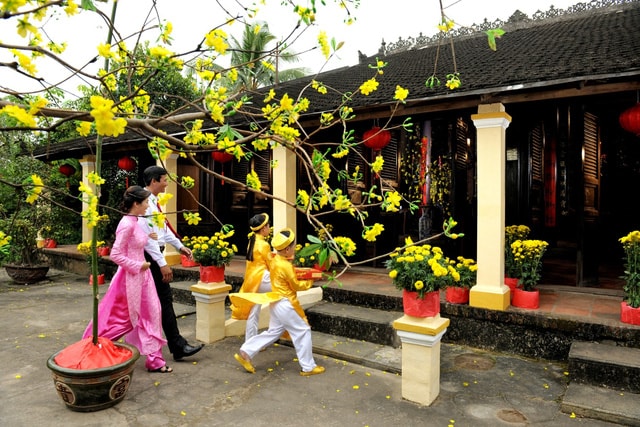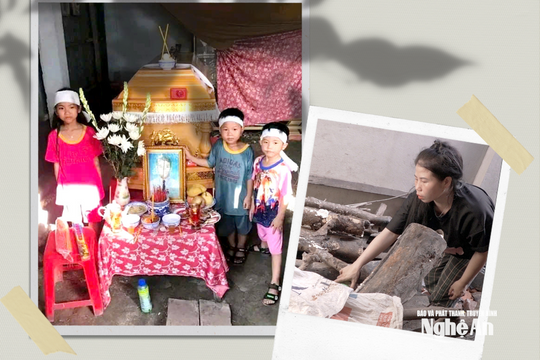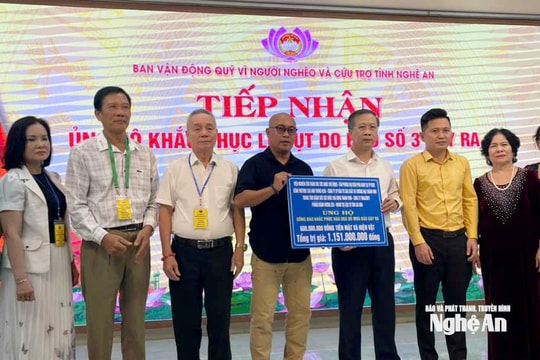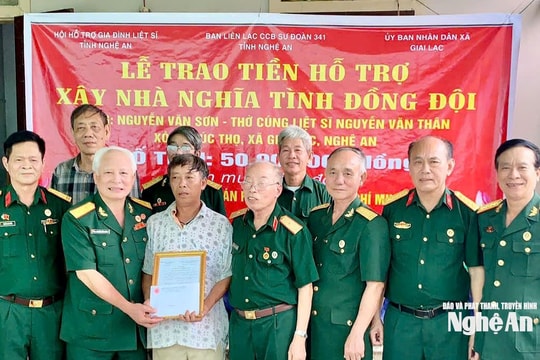Spring day thinking about family culture
Associated with the development of the village, clan culture is a driving force and a significant stimulus for the family and traditional society.
 |
| -Illustration |
From birth to death, a person's name and surname are the most solid and certain positioning for an individual. Because, no matter where they go, what they do, whether they become a national hero or just a simple worker living a leisurely life in the countryside, their given name represents a separate person, while their surname represents a community with blood ties and many historical characteristics.
Associated with the development of the village, a nucleus of traditional Vietnamese society, clan culture is a driving force and a significant stimulus for the family and traditional society. Clan temples, genealogy, eldest son, ancestor's death anniversary... are symbolic elements of clan culture.
For thousands of years, clan culture has directly or indirectly participated in the development of the traditional culture and has become an indispensable factor in the Vietnamese cultural heritage. This Binh Than Spring, lighting incense on the ancestral altar, we take the time to pause and reflect on clan culture with a spirit of inquiry and the most sincere feelings.
There was a time when people, for various reasons and with different perceptions, made an unclear distinction between beliefs, spiritual culture and superstition. These assumptions led to many consequences, causing many cultural, spiritual and religious activities to be restricted, sometimes even forced into hiding.
There have been phenomena of communal houses, pagodas being dismantled, temples being demolished, but in any case, the family temples are still intact, unaffected. That is also luck and partly to affirm the continuous flow of family culture not interrupted by external influences.
Throughout history, there have been large families associated with dynasties that held power under their names, such as: Dinh, Le, Ngo, Ly, Tran, Mac, Ho, Nguyen, etc. Statistics show that there are about 14 common families that account for 90% of the population in Vietnam.
In addition to the 8 families mentioned above, there are also the families: Bui, Do, Pham, Huynh, Dang, Duong, etc. Besides, the remaining 10% of the population are families of ethnic minorities such as: Cham, Khmer, An, Kieu, Hoa, Phung, Doan, etc. Each of those large families has established many glorious feats recorded in official history along with heroes who saved the country and saved the people, passed down to posterity, bringing fame to the family.
Therefore, many pages of family history are also pages of the country's history. In that development, each family established its own characteristics, style and prestige in relation to the village as well as to other families.
It could be a scholarly family, following the teaching profession and continuing the Confucian family line; it could be a martial family, proficient in archery and swordsmanship, practicing martial arts, passing them down to their children, etc. Those factors create the family's own cultural identity, determine the family's position in life and compare it with other families.
However, although their identities are different, the connotations of rituals, morality of remembering the source of water when drinking, cultivating and building the family church, and solidarity are very similar among families. Ancestors and the family church are the solid spiritual support for descendants in the family.
No matter where they go, what they do, no matter how full or hungry they are, on the occasion of the Lunar New Year, at all costs, the descendants of the family return to their homeland, the place where they were born and raised, where there is a family church, to stand before the family altar to light incense sticks to show respect to their ancestors and pray for their ancestors to grant them blessings and peace. That is satisfaction. That is the satisfaction of spiritual needs.
Parents, grandparents, and relatives are a source of motivation for their children to always have confidence to do business and work with peace of mind. That blood relationship and closeness is like a spiritual medicine that stimulates and encourages them to overcome difficulties to reach success. In daily life, when faced with challenges, they always think of those close people to be determined to overcome them.
When we are successful, we return to our homeland, return to the family temple, and reunite with our loved ones. There is no greater happiness. What is more beautiful than the first day of the lunar month, when spring is everywhere in our homeland, peach and apricot blossoms are blooming, and we can live in the love of our parents, grandparents, and siblings, and chat and share sincere feelings.
At those moments, minutes, many thoughts suddenly came to mind. Flashing through my mind, I thought that, in the end, only love is the most valuable and sacred. Money, fame and status in life are also fleeting… A green banh chung cake cut into 8 pieces, shared among 8 people called the same family, everyone feels united and happy. Realizing the saying “a drop of peach water is better than a pond of water”.
From the perspective of the structure of the village, the state, the family is the nucleus of society, the family is the cell of the clan, the clan is the unit that forms the village. The village is the nucleus of the country. A strong village makes a strong country, a village exists only when the country exists. That solidarity and bridging nature shows the important role of clan culture with the village and the country.
Whether a family in general and a family culture in particular is strong or weak, static or dynamic, prosperous or declining depends mainly on the people of that family. The time period is only a secondary factor.
According to many studies, clan culture is like an underground stream, watering the soul and enriching the cultural capital of clan members. Clan culture has no drums or gongs, but the source of life is abundant and prosperous.
With external manifestations, there was a time when, due to difficult economic conditions, many family temples were degraded, family ancestor memorial services were organized carelessly, descendants participated sparsely, family members did not know each other, etc. But, fortunately, in recent decades, the trend of returning to the roots and reviving family activities in the countryside has been vibrant and has many outstanding features.
Many clan temples have been renovated or newly built; many clan genealogies have been collected, translated and widely disseminated to clan members; ancestor worship rituals are performed methodically according to traditional principles.
In particular, the establishment of a clan executive committee to take care of studying, encouraging learning, and educating the children about traditions is organized widely and effectively. These activities bring many spiritual and material values to the members of the clan, becoming a common beneficial activity for the clan.
All activities that unite and develop the clan will be a legitimate and sacred connection for clan members to unite, support and help each other both materially and spiritually to stabilize and develop their lives. Within each clan, there are still many unresolved issues, many conflicts and contradictions.
However, that is just a seasonal, fleeting phenomenon. It is not the nature. Let's look at the reality. All over the countryside, all over the spring roads, it seems that all those who have gone far away and those who have stayed behind go to the family temple to burn incense for their ancestors and show their respect.
Just five or ten years ago, going to burn incense at the family temple was the responsibility of the eldest son and the head of the family, not the concern of the second son, eldest daughter, or second daughter.
Today's Vietnamese Tet has changed in quality. Along with the changes and economic development are changes in culture and community life. Vietnamese people not only celebrate Tet like before, but also switch to playing Tet.
In that transformation, clan culture is the foundation and support to help descendants in the clan have a deeper awareness of their family lineage, thereby making each person's soul sublimate and creating a cultural identity typical of Vietnamese culture on the journey towards the future./.
According to VOV
| RELATED NEWS |
|---|

.jpg)




.jpg)

